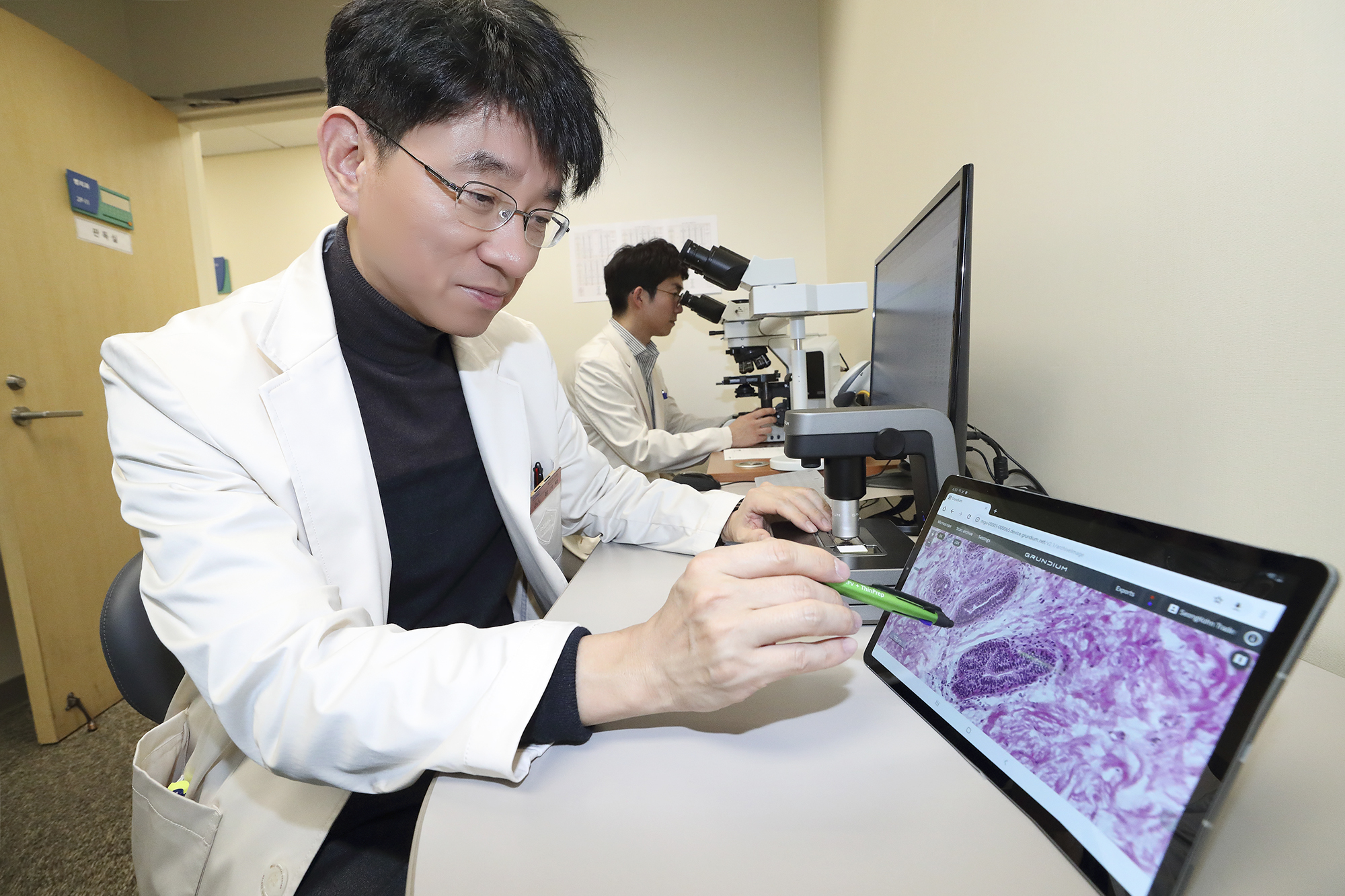Medical staff at the Samsung Medical Center wear sync cams to proceed surgery of a patient
▶ World’s First Application of 5G Technology in Medical Practice
– Sync Cams Share Real-Time HD Video Footage of Surgery for Teaching
▶ 5G Network Base Made Secure for Medical Service Development
– Enterprise-Dedicated 5G Network Protects Private Medical Info from Hacking
SEOUL, South Korea (January 20, 2020) – KT Corporation (KRX: 030200; NYSE: KT), Korea’s largest telecommunications company, and the Samsung Medical Center (SMC) announced last week that they have jointly developed an innovative, 5G-powered medical service as an initial step to establishing a 5G smart hospital.
For the pilot project, KT built an enterprise-dedicated 5G network at the SMC, __create__d service environments in operating and proton therapy rooms, and conducted a test operation. Based on the project’s outcome, the two parties plan to continue to develop smart patient care and 5G-powered innovative medical practices and improve hospital operational efficiency.
“KT, in partnership with the Samsung Medical Center, is pioneering innovative medical services for the new 5G era,” said Park In-Young, Vice President of KT’s ICT Convergence Business Department. “We will continue to further refine 5G-powered medical technology by applying VR and AR technologies for real-time education.”
The two partners have been applying 5G on site to __create__ better medical services since they signed a memorandum of understanding in September 2019. These services include digital diagnostic pathology, access to proton therapy information, teaching surgery, an artificial intelligence-enabled care for in-patients, and an autonomous robot for an operating room.
Access to Digital Data and Video Footage
The 5G-powered digital pathological analysis conducted by SMC is a world-first example of innovation using 5G technology for on-site medical procedures.
In diagnostic pathology practiced up to now at one of Korea’s biggest hospitals, tissues taken from the patient during surgery were treated for analysis and sent to pathologists in an adjacent room. This required up to 20 minutes of walking back and forth, making it difficult for pathologists to conduct on-site group analyses.
Speedy and uninterrupted access to pathological data obtained during surgery, which is critical in determining the conditions of patients, is provided by a 5G network with ultra-high speed and ultra-low latency. The network allows the Pathology Department to gain access to materials, each containing about 4GB of data, ensuring better medical services.
The network also provides speedy access to CT and MRI data on proton therapy. The procedure required the pathologists to walk about a kilometer to the proton therapy center to download the files. Now, the 5G network enables them to access the files from anywhere within the medical center.
Surgery Education Away from the Operating Room
Operating rooms are too crowded with surgeons, nurses and medical equipment for medical students to observe closely. Resolving the hurdle to effective teaching, KT has developed a 5G-assisted education program in cooperation with the Samsung Medical Center.
The program enables surgeons in operating room to teach a large group of medical trainees in a separate lecture room, using sync cams on the 5G network. It provides voice and high-quality video footage from the perspective of the surgeons in real time.
Robots for Operating Room Assistance; AI for In-Patient Care
A delivery robot developed for operating rooms can remove contaminated materials and other medical waste for disposal. The autonomous robot can also bring in surgery supplies.
Robots for operating room assistance will reduce secondary and tertiary infection which occurs through contact with medical waste and save human resource costs in waste disposal. Moreover, 5G-enabled massive connectivity minimizes disruption and latency in data exchange with robots and terminals.
Smart Care Giver is an innovative AI-assisted system of in-patient care. It provides AI services on KT’s GiGAGenie engine, enabling patients to control their hospital room with a voice command, and with their permission checking their medical condition. Hence the medical staff can respond more efficiently to patient emergencies.
5G-Powered Smart Hospital
Collaboration between KT and the Samsung Medical Center will continue beyond the development of innovative medical service during this year.
“Based on the verified new services, we will continue our collaboration with KT to promote convenience for all of our customers, including patients, medical staff and visitors,” said Professor Park Seung-Woo, who is in charge of the smart hospital project at the SMC.

In the office of Samsung Medical Center, a professor of pathology is checking the pathology data of a patient just taken.